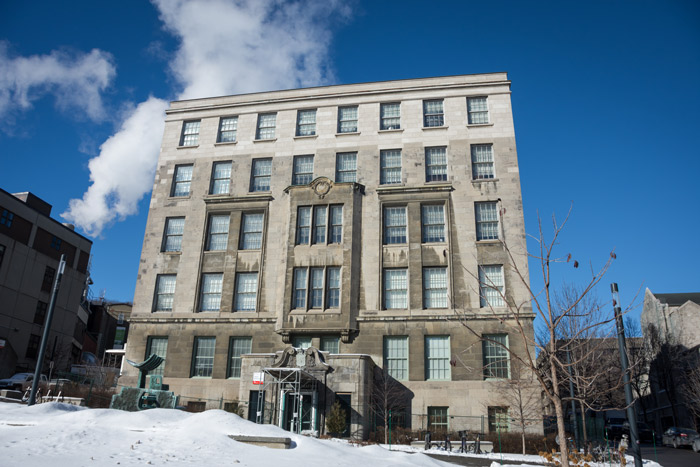The Board of Governors (BoG) held its first meeting of the 2017-2018 term on Oct. 5, which highlighted the appointment of McGill alumna Julie Payette to the office of Governor General of Canada, McGill’s response to the legalization of cannabis, recent progress made by the Task Force on Indigenous Studies and Indigenous Education, and the university’s plans to enact its Policy Against Sexual Violence.
McGill alumni successes
The meeting opened with the recognition of the appointment of McGill alumna Julie Payette, (BEng ‘86) to the position of Governor General, on Oct. 2. She is Canada’s 29th Governor General, succeeding David Johnston. As Governor General, Payette has the final say on any legislation by giving Royal Assent.
“Her speech is so relevant, her focus is focused on education, and she really connected to the indigenous people,” Governor Ram Panda said.
Additionally, McGill alumna Jennifer Sidey was recruited by the Canadian Space Agency. She is the fifth McGill graduate to join the CSA.
“[Payette told me] ‘I think that, for McGill graduates, the sky is not the limit,’” Fortier said.
Discussion on the legalization of recreational cannabis
Members of the BoG also discussed the legalization of recreational cannabis—scheduled to occur in Quebec on July 1, 2018—and how this will affect student life. According to McGill Principal Suzanne Fortier, McGill is working with all other Quebec universities through the Bureau de Cooperation Universitaire to implement a provincially-standardized safe regime on campus to regulate the recreational use of cannabis.
“We will treat cannabis the same way that we treat alcohol on campus,” Fortier said. “Nothing [is permitted] during the day, inside or out. The [Vice-President] (VP) Research initiated the idea of [investing] in core research on the impact of cannabis [on students].”
Steps to improve Indigenous relations
Later, Provost and VP (Academic) Christopher Manfredi and VP Camilla Cook gave updates on the progress of the Task Force on Indigenous Studies and Indigenous Education, an ongoing initiative that aims to expand awareness of Indigenous history and repair relations with Indigenous communities at McGill. In the BoG report, Manfredi identified 52 ‘Calls to Action’ to be undertaken to achieve the Task Force’s goals. These 52 steps are divided into five categories: Student recruitment and retention, physical representation and symbolic recognition, academic programs and curriculum, research and the academic complement, and building capacity and human resources.
“We have role to play in a couple of different areas,” Manfredi said. “Extensive teacher training programs are in effect […] as well as research programs, to deal with food and water security and infections that [Indigenous] communities are facing [….] The indigenous community should not be ignored, and they are, singularly, the fastest growing young demographic in Canada.”
Governor Tina Hobday asked Manfredi to clarify aspects of the report.
“This seems extremely ambitious to me as it is, a lot involved, a lot of complexity [….] My question is, do you think you’re going to get to the last recommendations, how long is it going to take?” Hobday said.
Manfredi explained that implementation of the goals is a long-term strategy that he expects will take several years to complete.
“Some of these things are going to be worked on between now and 2022,” Manfredi said. “[It is] a roadway to how we can forward our crucial job in the connection of the indigenous community [….] However, some can be immediate, such as indigenous representation on campus in the form of indigenous art.”
Discussion on the Policy Against Sexual Violence
The BoG discussed the university's Policy Against Sexual Violence. Fortier emphasized the $23 million investment from the Quebec provincial government to counter sexual violence in post-secondary institutions across the province.
This investment followed a new policy accepted by the Quebec government at the end of 2016. McGill passed its own Policy against Sexual Violence in November 2016, which placed emphasis on the support and wellbeing of survivors. Fortier affirmed the policy’s mandate to separate the support process from the investigation process.
“First thing is to support the person, don’t wait for the investigation to be completed,” Fortier said. “Don’t even wait for it to start. We are going to move the [support] services to make it a private environment separate from the investigation, and put it as a priority to give support and whatever help the survivor needs.”








